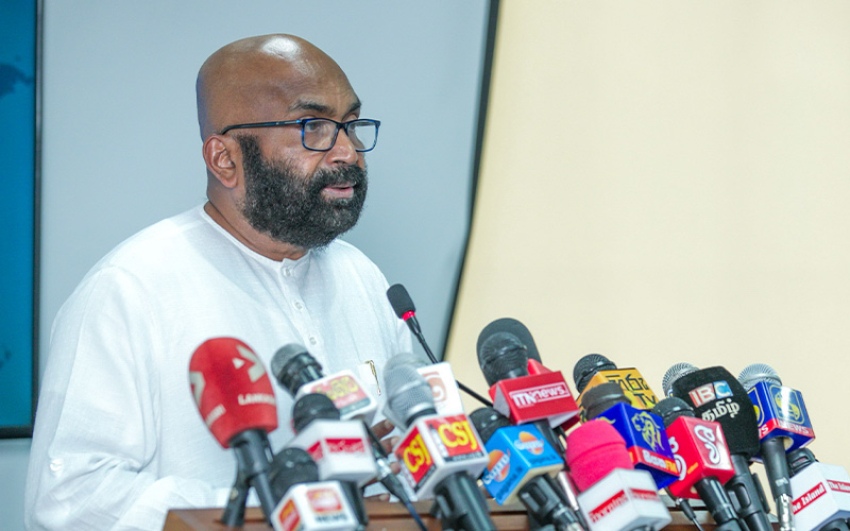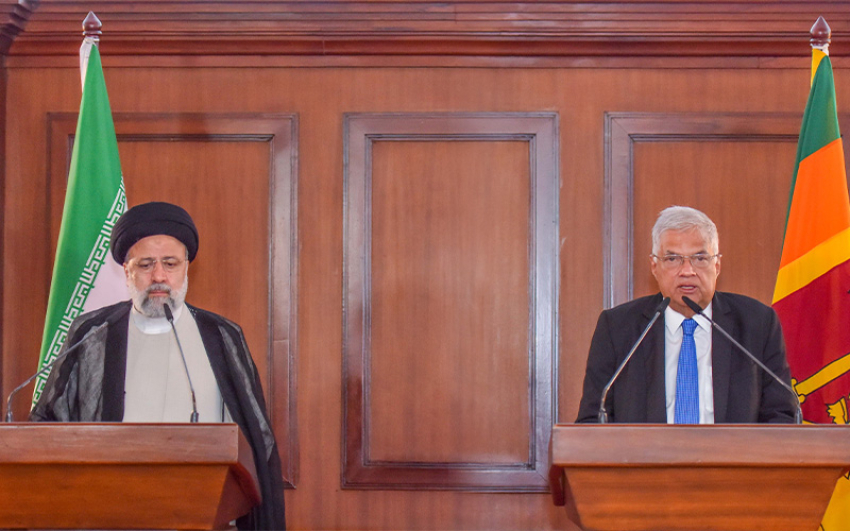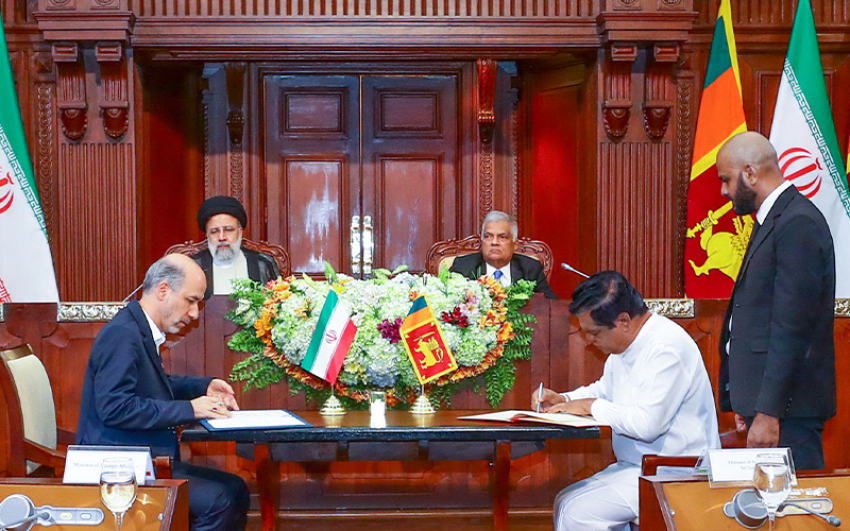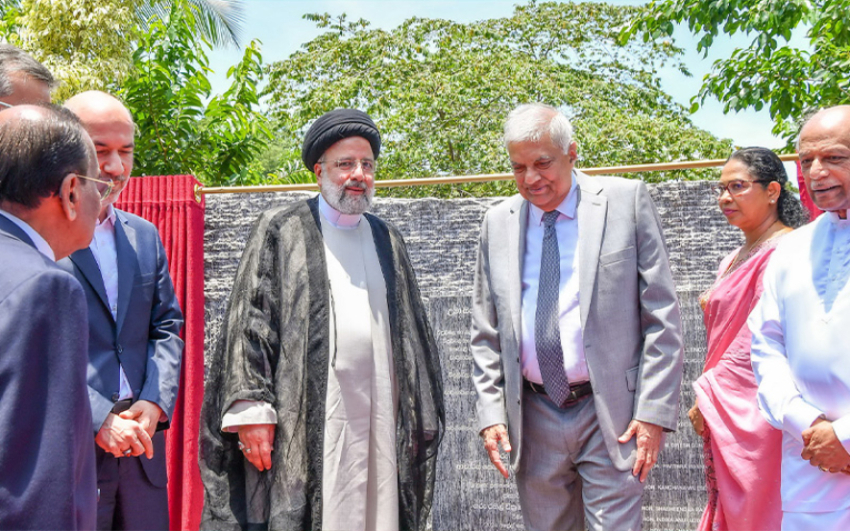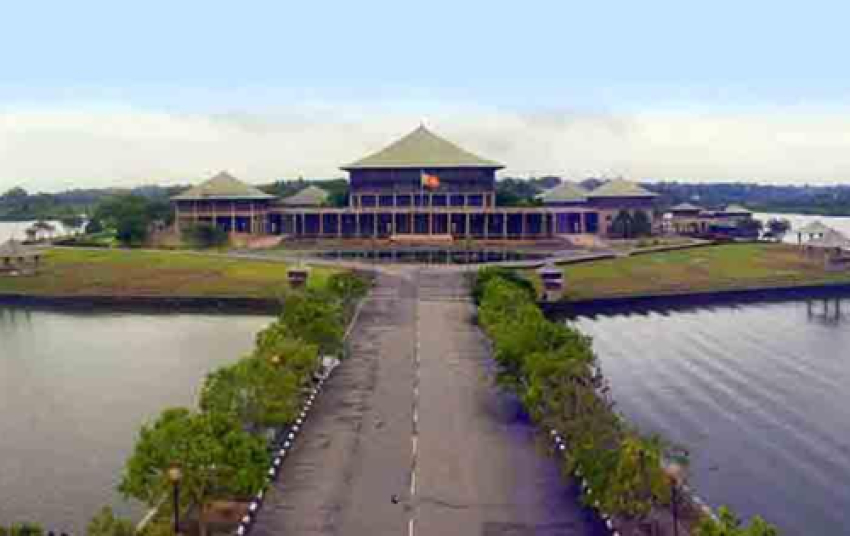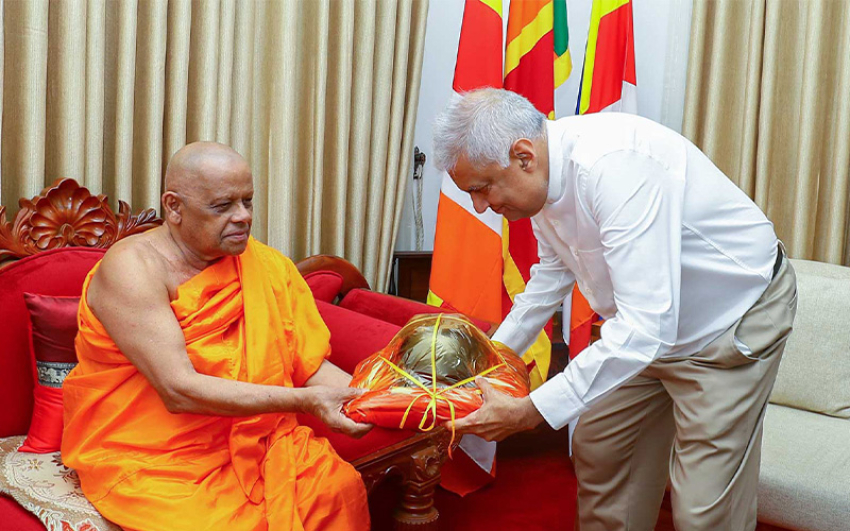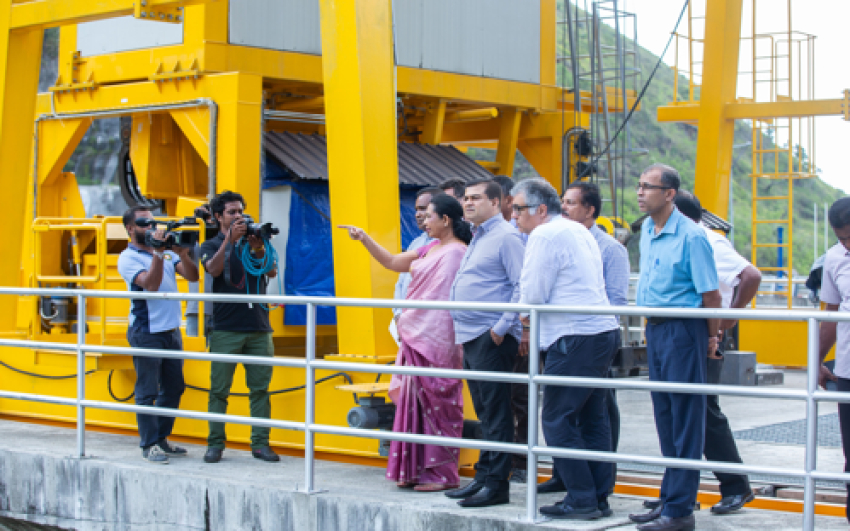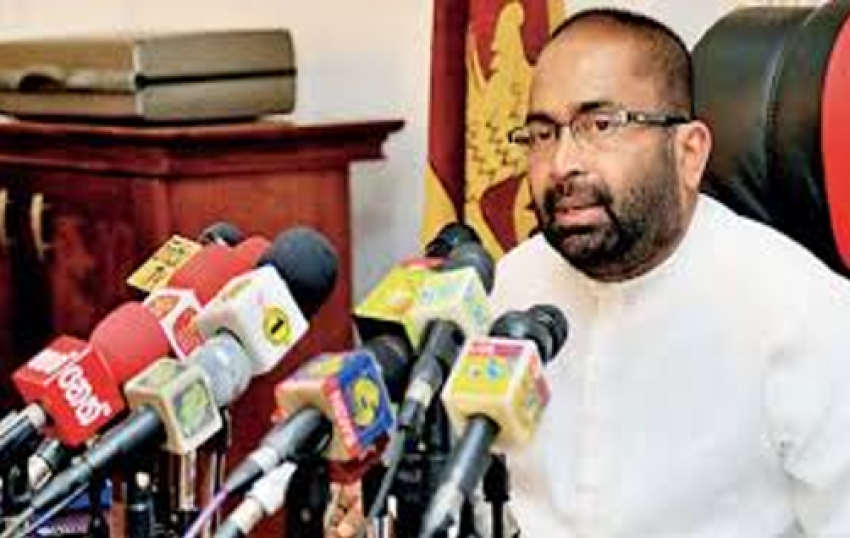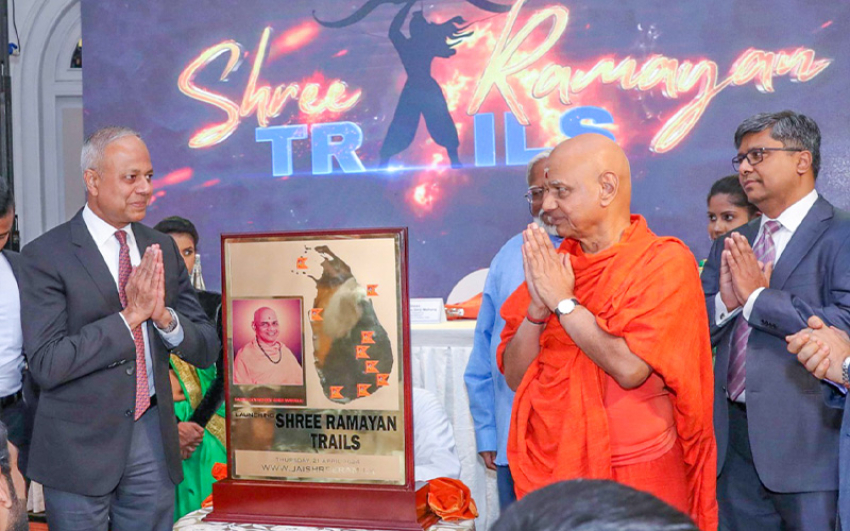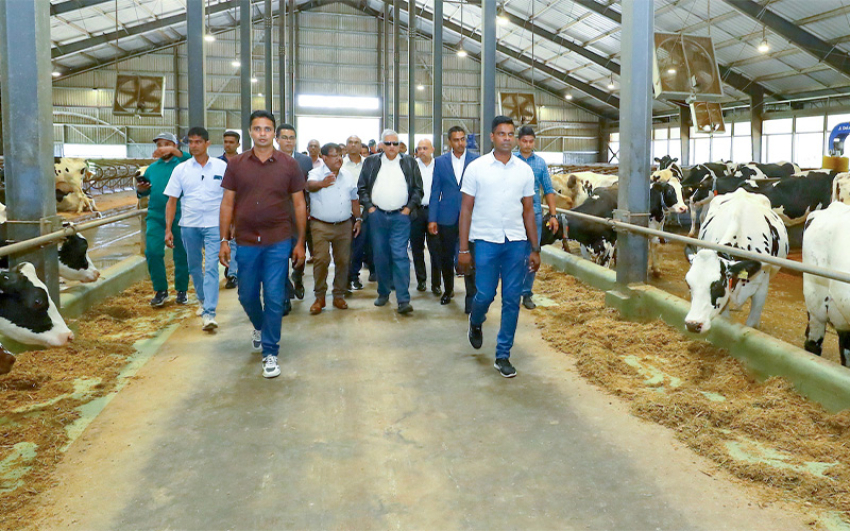India's Prime Minister Narendra Modi has appealed for calm as violent protests against a new law on illegal migrants entered a fifth day.There are large protests in the capital Delhi as well as in Mumbai, Hyderabad and Kolkata (formerly Calcutta).On Sunday, police used tear gas and detained protesters, as buses were torched and roads blocked.The new law entitles citizenship to some non-Muslim migrants from three Muslim-majority countries.But people are divided on why they have taken to the streets.Some critics say the law is anti-Muslim, while others - especially in border regions - fear large-scale migration.
On Monday, as protests resumed in Delhi and several other cities, Mr Modi took to Twitter to reassure protesters."I want to unequivocally assure my fellow Indians that Citizenship Amendment Act does not affect any citizen of India of any religion. No Indian has anything to worry regarding this act. This act is only for those who have faced years of persecution outside and have no other place to go except India," he wrote."This is the time to maintain peace, unity and brotherhood."Authorities have tried to curb the protests by shutting down internet services, so it is unclear how many people in affected areas have seen his tweets. The protests - which have left six people dead - began in the north-eastern state of Assam on Thursday, before spreading to other parts of northern and eastern India.Students at universities across the country resumed demonstrations on Monday.
Police say they did what was necessary to stop the protests in DelhiIn Kolkata, tens of thousands of people have joined a demonstration led by Chief Minister Mamata Banerjee and her ruling Trinamool Congress party.Further demonstrations are expected in a number of other cities.On Monday, Delhi police spokesman MS Randhawa said officers "exercised maximum restraint" in response to allegations of excessive force used on students.Several lawyers asked the Supreme Court to intervene, pointing out that officers had assaulted students in bathrooms, but the chief justice said that the court would not take any action until students ceased their protests.The UK, US and Canada have issued travel warnings for people visiting India's north-east, telling their citizens to "exercise caution" if travelling to the region.
What is happening in Delhi?
On Monday morning, protests resumed in Delhi's prestigious Jamia Millia Islamia university after students held a march which ended in clashes with the police on Sunday.
Around 35 students were detained by police on Sunday and released early on Monday morning.The university's vice chancellor, Najma Akhtar, condemned the police action on Monday and told reporters that they would be filing a court case against the police and demanding a high-level inquiry.She also denied rumours of student deaths.It is still unclear who started the violence but stones were thrown at the police who retaliated with tear gas.Local media reported that nearly 60 people, including students and police, were injured. At least three buses and several motorcycles were set on fire.Students distanced themselves from the violence and some police officers privately admitted that local troublemakers were behind the trouble, the BBC's Kinjal Pandya reported.
Student protesters near Jamia Millia Islamia in Delhi The university said police later entered the campus without permission and video footage showed police assaulting students and staff.Videos shot by students show police beating up students inside campus areas like bathrooms and the library.Police have said that they did what was "necessary" to stop the protests.Some schools in southern Delhi have been asked to remain closed on Monday.Hundreds of people also protested in other parts of the city, including in Jawaharlal Nehru University and outside the city's police headquarters.What did the Supreme Court say?"Public properties are being destroyed, buses are being burned. We will take cognisance, but all this has to stop," Chief Justice Sharad Bobde said.
He added that the court was not against peaceful demonstration, but that "this atmosphere must settle down"."If protests and violence continues, we will not hear a case on this."The chief justice also criticised the student protesters, saying that they could not "take the law into their own hands"."The court can't do anything right now. Let the riots stop," he said.At a press briefing on Monday, Delhi police spokesman MS Randhawa appealed for calm and asked students to not get provoked, even as he denied allegations of excessive force."Police exercised utmost restraint. There was no firing and we have used minimum force," he said.
The police have been heavily criticised, with many on social media alleging that officers attacked students with sticks and tear gas when they were peacefully protesting.But Mr Randhawa said students and locals threw stones at the police first, adding that 30 policemen were injured."We will identify outside protesters and take action against them," he said.Live footage from the northern city of Lucknow on Monday showed students at Nadwa university throwing stones at security forces, who retaliated by throwing the stones back at them.The students have been locked inside the campus.Local television footage also showed officers hitting students with large sticks.
The situation remains tense and more protests are expected. Students at the prestigious Indian Institute of Technology in the southern city of Chennai (formerly Madras) have already announced a protest this afternoon.And students in Delhi University have announced that they are boycotting examinations in solidarity.
On Sunday, hundreds of students across Indian cities came out in support of those protesting in Jamia Millia Islamia.In the northern city of Aligarh, students of Aligarh Muslim University clashed with police, prompting the university to close down the campus until 5 January.
A large protest also broke out in the southern city of Hyderabad, as students of Maulana Azad Urdu University carried slogans against the police action in Delhi.In India's financial capital, Mumbai, students of the Tata Institute of Social Sciences held a candlelit march.
Some students in Delhi also alleged that police sexually harassed and assaulted students on Sunday.Students in other cities like Varanasi and Kolkata also held marches in solidarity throughout Sunday.
The law allows non-Muslims from Bangladesh, Pakistan and Afghanistan, who entered India illegally, to become citizens.The Hindu-nationalist BJP government argues that the law aims to accommodate those who have fled religious persecution.ritics say the law is part of the government's agenda to marginalise Muslims, and that it violates secular principles enshrined in the constitution.Earlier this week the United Nations Human Rights office voiced concern that the new law was fundamentally discriminatory in nature.The government denies any religious bias and says Muslims are not covered by the new law because they are not religious minorities, and therefore do not need India's protection.Meanwhile, people in Assam fear that they will be "overrun" by illegal non-Muslim migrants from neighbouring Bangladesh.They argue that outsiders will take over their land and jobs - eventually dominating their culture and identity.
The protests in Assam have little to do with concerns about the exclusionary nature of the law and the threat to secularism.
They have more to do with indigenous fears about being demographically and culturally swamped by "outsiders".
Why has India's Assam erupted over an 'anti-Muslim' law?
Soutik Biswas
India correspondent
13 December 2019
Share this with Facebook Share this with Messenger Share this with Twitter Share this with Email Share
Image copyrightEPA
Image caption
There have been massive protests against the citizenship bill in Assam
Assam, a picturesque tea-growing state in India's north-east, is on the boil over a controversial new citizenship law that would make it easier for non-Muslim minorities from three neighbouring countries to seek Indian citizenship.
Thousands of troops have been deployed, a curfew imposed and internet services suspended, in efforts to quell the mass protests taking place in some areas of the state. There have been pitched battles between police and demonstrators. At least two people have died and seven policemen have been injured in clashes.
But the protests in Assam - the first in the country after the bill was passed - have little to do with concerns about the exclusionary nature of the bill and the threat to secularism.
They have more to do with indigenous fears about being demographically and culturally swamped by "outsiders".
One reason for the tensions is that Assam is one of India's most complex and multi-ethnic states. Assamese and Bengali-speaking Hindus live here, as do a medley of tribespeople. A third of its 32 million residents are Muslims, the second-highest number in any part of India after Indian-administered Kashmir.
It is also one of India's most fragmented and troubled regions: four north-eastern states have been carved out of Assam and three groups of tribespeople living there want to break away and form their own states.
Residents have clashed over linguistic identity and citizenship. The Assamese and Bengali-speaking people have fiercely competed to control jobs and resources, often ignoring the legitimate claims and aspirations of the indigenous tribespeople who have lived there for centuries.
Image copyrightEPA
Image caption
A curfew has been imposed in Assam's largest city, Guwahati
Then there's the illegal immigration from neighbouring Bangladesh that has been a serious concern there for decades now.
Assam shares a nearly 900km (560-mile) long border with Bangladesh, and both Hindus and Muslims have trickled in, some fleeing religious persecution and others looking for jobs. Estimates of illegal foreigners in the state range from four million to 10 million.
A six-year anti-foreigner protest in the 1980s - during which hundreds of people were murdered - led to a 1985 pact between the federal government and protesters. It was agreed that anyone who entered Assam without proper documentation after 24 March 1971 would be declared a foreigner and deported.
Citizenship Amendment Bill: India's new 'anti-Muslim' law explained
However, when nothing much changed over the next three decades, India's Supreme Court stepped in and ordered that a register of citizens prepared for the state in 1951 should be updated with the aim of identifying "genuine" citizens. In August, the updated National Register of Citizens, as the list is called, left out nearly two million people, effectively stripping them of citizenship.
In the run-up to its publication, India's ruling Hindu nationalist Bharatiya Janata Party (BJP) had supported the NRC.
The party had also swept to power in Assam's state government in 2016, riding on the support of the Hindus and tribespeople.
But the BJP changed tack before the final citizens' register was published, saying it was error ridden. The reason for that was a lot of Bengali Hindus - a strong voter base for the party - were left off the list, and risked becoming illegal immigrants.
Now the BJP has announced yet another update to the NRC to rectify the "wrongs" of the first list.
Image copyrightREUTERS
Image caption
A woman carrying her son checks her name on the draft list of the NRC in Chandamari
The citizenship law - together with the NRC - now threaten to crack open old fault lines.
The Assamese-speaking people - nearly half of the population - feel that they have been betrayed by the BJP, which had promised to detect and deport illegal immigrants. Muslims are angry with the law because they think it is discriminatory and they will be eventually singled out as illegal immigrants only on the basis of their religion. The Bengali-speaking Hindus are upset because reportedly more of them - and not Muslims - have been left out of the NRC.
There are other concerns as well. The law lays out special protections for some areas of Assam which are dominated by tribespeople, to bar illegal immigrants from all communities from settling down there. But many say that because it does not cover the entire state, non-Muslim migrants, living in these "protected" areas could move to other parts of Assam and seek amnesty.
"I don't think the BJP expected this sort of response to the citizenship law and the NRC in Assam. They could turn out to be bigger disasters than demonetisation," says Subir Bhaumik, an expert on India's north-east, referring to the botched currency ban of 2016 to flush out undeclared wealth.
It does appear that the BJP did not anticipate the blowback. In a damage control exercise, Prime Minister Narendra Modi tweeted on Thursday that his government was "constitutionally committed to safeguard the political, linguistic, cultural and land rights of the Assamese people". No-one, he said, "can take away your rights, unique identity and beautiful culture". It is not clear whether Mr Modi's assurances will placate the protesters.
India's new 'anti-Muslim' law explained
11 December 2019
Share this with Facebook Share this with Messenger Share this with Twitter Share this with Email Share
Image copyrightAFP
Image caption
One analyst has called the bill the most consequential action of the Modi government
India's parliament has passed a bill which offers amnesty to non-Muslim illegal immigrants from three neighbouring countries.
The bill provides citizenship to religious minorities from Pakistan, Bangladesh and Afghanistan.
The government, led by the Hindu nationalist Bharatiya Janata Party (BJP), says this will give sanctuary to people fleeing religious persecution.
Critics say the bill is part of a BJP agenda to marginalise Muslims.
The Citizenship Amendment Bill (CAB) passed the upper house of parliament, where the BJP lacks a majority, by 125 votes to 105 on 11 December. It had cleared the lower house two days earlier.The bill has already prompted widespread protests in the north-east of the country which borders Bangladesh, as many people there say they will be "overrun" by immigrants from across the border.What does the bill say?
The CAB amends the 64-year-old Indian Citizenship law, which currently prohibits illegal migrants from becoming Indian citizens.It defines illegal immigrants as foreigners who enter India without a valid passport or travel documents, or stay beyond the permitted time. Illegal immigrants can be deported or jailed.
The new bill also amends a provision which says a person must have lived in India or worked for the federal government for at least 11 years before they can apply for citizenship.
Image copyrightGETTY IMAGES
Image caption
Hindu refugees from Pakistan in a refugee camp in Jammu
Now there will be an exception for members of six religious minority communities - Hindu, Sikh, Buddhist, Jain, Parsi and Christian - if they can prove that they are from Pakistan, Afghanistan or Bangladesh. They will only have to live or work in India for six years to be eligible for citizenship by naturalisation, the process by which a non-citizen acquires the citizenship or nationality of that country.
It also says people holding Overseas Citizen of India (OCI) cards - an immigration status permitting a foreign citizen of Indian origin to live and work in India indefinitely - can lose their status if they violate local laws for major and minor offences and violations.
Why is the bill controversial?
Opponents of the bill say it is exclusionary and violates the secular principles enshrined in the constitution. They say faith cannot be made a condition of citizenship.The constitution prohibits religious discrimination against its citizens, and guarantees all persons equality before the law and equal protection of the law.Delhi-based lawyer Gautam Bhatia says that by dividing alleged migrants into Muslims and non-Muslims, the bill "explicitly and blatantly seeks to enshrine religious discrimination into law, contrary to our long-standing, secular constitutional ethos".Historian Mukul Kesavan says the bill is "couched in the language of refuge and seemingly directed at foreigners, but its main purpose is the delegitimisation of Muslims' citizenship".
Critics say that if it is genuinely aimed at protecting minorities, the bill should have have included Muslim religious minorities who have faced persecution in their own countries - Ahmadis in Pakistan and Rohingyas in Myanmar, for example. (The government has gone to the Supreme Court
Defending the bill, senior BJP leader Ram Madhav said, "no country in the world accepts illegal migration"."For all others about whom the bleeding hearts are complaining, Indian citizenship laws are there. Naturalised citizenship is an option for others who legally claim Indian citizenship. All other illegal [immigrants] will be infiltrators," he added.Also defending the bill earlier this year, R Jagannathan, editorial director of Swarajya magazine, wrote that "the exclusion of Muslims from the ambit of the bill's coverage flows from the obvious reality that the three countries are Islamist ones, either as stated in their own constitutions, or because of the actions of militant Islamists, who target the minorities for conversion or harassment".
The Citizen Amendment Bill was first put before parliament in July 2016.The legislation cleared parliament's lower house where the BJP has a large majority, but it did not pass in the upper house, after violent anti-migrant protests in north-eastern India.The protests were particularly vocal in Assam state, which in August saw two million residents left off a citizens' register. Illegal migration from Bangladesh has long been a concern in the state.The CAB is seen as being linked to the register, although it is not the same thing.The National Register of Citizens (NRC) is a list of people who can prove they came to the state by 24 March 1971, a day before neighbouring Bangladesh became an independent country.
The government says the National Register of Citizens is needed to identify illegal migrantsIn the run-up to its publication, the BJP had supported the NRC, but changed tack days before the final list was published, saying it was error-ridden.The reason for that was a lot of Bengali Hindus - a strong voter base for the BJP - were also left out of the list, and would possibly become illegal immigrants.
The two are closely linked, because the Citizenship Amendment Bill will help protect non-Muslims who are excluded from the register and face the threat of deportation or internment.This means tens of thousands of Bengali Hindu migrants who were not included in the NRC can still get citizenship to stay on in Assam state.Later, Home Minister Amit Shah proposed a nationwide register of citizens to ensure that "each and every infiltrator is identified and expelled from India" by 2024.
Right-wing groups have protested against Rohingya refugees living in India
"If the government goes ahead with its plan of implementing the nationwide NRC, then those who find themselves excluded from it will be divided into two categories: (predominantly) Muslims, who will now be deemed illegal migrants, and all others, who would have been deemed illegal migrants, but are now immunised by the Citizenship Amendment Bill if they can show that their country of origin is Afghanistan, Bangladesh or Pakistan," Mr Bhatia said.Taken together, the NRC and CAB have the "potential of transforming India into a majoritarian polity with gradations of citizenship rights," said sociologist Niraja Gopal Jaya.
Are India's claims about minorities in other countries true?
By Reality Check team
BBC News
12 December 2019
Share this with Facebook Share this with Messenger Share this with Twitter Share this with Email Share
Related TopicsReality Check
Image copyrightGETTY IMAGES
Image caption
Diwali celebrations in the Pakistan city of Karachi
The Indian government has introduced a controversial bill offering citizenship to illegal immigrants from three neighbouring countries if they belong to non-Muslim minority groups.
Hindus, Sikhs, Buddhists, Jains, Parsis and Christians who have entered India illegally can apply for citizenship if they can prove they originate from Muslim-majority Pakistan, Bangladesh or Afghanistan.
Getty
This bill only intends to provide protection to the persecuted minorities in Pakistan, Afghanistan and Bangladesh.
Amit Shah
Indian Home Minister
The government argues that minorities in those countries are dwindling, and that they face persecution on the grounds of their faith.
The legislation has been criticised as discriminatory in India because it excludes Muslims seeking citizenship as well.
So what is the situation facing non-Muslims in those three neighbouring states?
How many non-Muslims?
Amit Shah, India's Home Minister, says Pakistan's non-Muslim population has dwindled dramatically since 1951.
This follows the mass exodus of non-Muslims from Pakistan after partition in 1947 and the flight of Muslims from India to Pakistan.
Mr Shah cited a remaining minority population in Pakistan of 23% in 1951, and he says this has shrunk over the decades due to persecution.
But Mr Shah's figures need to be challenged as he appears to have combined the data for what is now the state of Pakistan (formerly west Pakistan) with what is now Bangladesh (formerly east Pakistan).
Census data for 1998 shows that the Hindu population of Pakistan (which was formerly west Pakistan) had not really changed significantly from its 1951 level of around 1.5 to 2%.
But the data also suggests that the Hindu population of Bangladesh did fall - from around 22% or 23% in 1951 to around 8% in 2011.
Image copyrightGETTY IMAGES
Image caption
A Hindu marriage in Pakistan - these were legally recognised in 2017
There are other non-Muslim religious minorities in Pakistan and Bangladesh, such as Christians, Buddhists, Sikhs, and Parsis. And in Pakistan, there are also Ahmadis, who were declared non-Muslim by the government in the 1970s, and are estimated to be around four million strong, making them the largest religious minority in the country.
In Afghanistan, non-Muslim groups include Hindus, Sikhs, Bahais and Christians, and make up less than 0.3% of the population. In 2018, there were just 700 Sikhs and Hindus left in Afghanistan as families had been leaving because of the conflict there, according to a report for the US State Department.
What's the official status of non-Muslims?
The Indian government's citizenship bill states: "The constitutions of Pakistan, Afghanistan and Bangladesh provide for a specific state religion. As a result, many persons belonging to Hindu, Sikh, Buddhist, Jain, Parsi and Christian communities have faced persecution on grounds of religion in those countries. "
It's true that the state religion of Pakistan is Islam. Afghanistan is also an Islamic state.
In Bangladesh the situation is more complicated. The country came into being in 1971 with a secular constitution, but in 1988 Islam was made the official state religion.
A lengthy legal battle to get that reversed ended in 2016 when Bangladesh's top court ruled that Islam should remain the state religion.
However, all these countries have constitutional provisions stating that non-Muslims have rights and are free to practise their faith. And individual Hindus have risen to prominent positions in both Pakistan and Bangladesh, notably as chief justices in the two countries.
Do the minorities face discrimination?
In practice, non-Muslim minorities do face discrimination and persecution.
What are Pakistan's blasphemy laws?
Human rights group Amnesty International has pointed to Pakistan's blasphemy laws, which it says "are vaguely formulated and arbitrarily enforced by the police and judiciary in a way which amounts to harassment and persecution of religious minorities".
Image caption
A group of Hindus from Pakistan living at a camp in Delhi
Pakistani Hindus who moved to India in recent years told the BBC they face social and religious discrimination, with a particular issue being the targeting of Hindu girls in Sindh province.
But it's also true that Ahmadis, who are not covered by India's citizenship bill, face discrimination for their beliefs as they are regarded as heretical by the Muslim majority.
And the majority of blasphemy cases up to 2018 had been filed against other Muslims and Ahmadis, not against Christians or Hindus.
In Bangladesh, there are various reasons for the decline in the proportion of Hindus over the years. The better-off Hindu population have had their homes and businesses targeted, sometimes in attempts to get them to leave so their land or assets can be taken over. Hindus have also been the targets of attacks by religious militants.
The Bangladesh government has rejected India's claims about minorities being targeted. Foreign Minister Abdul Monem told the BBC: "We don't have examples of minorities being persecuted in this country."
According to UN data, the number of refugees in India went up by 17% between 2016-19. As of August this year, the biggest numbers registered with the UN were actually from Tibet and Sri Lanka.



